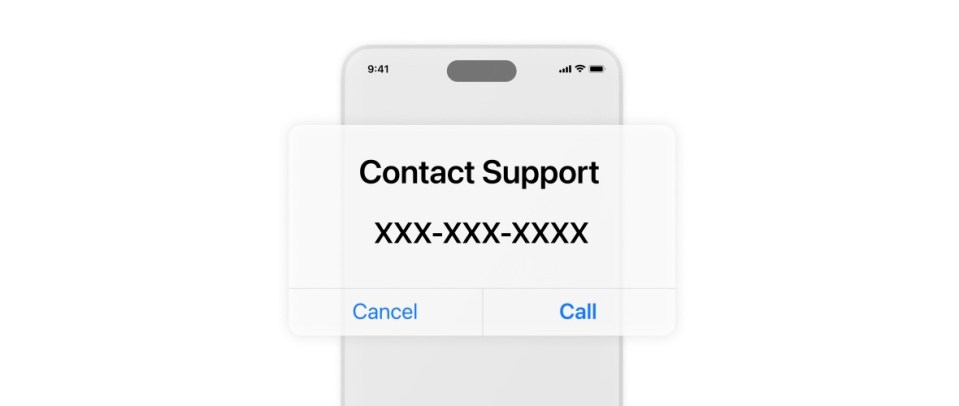
TECH support scams are becoming increasingly more popular with hackers and cybersecurity criminals.
One of the most common types of scams involves letting iPhone owners believe their phone has already been hacked.
The best way to protect your iPhone is by ignoring any pop-up or text messages that claim your phone has been hacked.
Hackers often create these pop-up messages in the hopes that unsuspecting users will share private information, like their Apple ID and password.
Many pop-up messages invite users to click or download software to "protect" or "secure" their phones, allowing hackers to infect their phones with malware, spyware, or other types of viruses.
iPhone users should look out for six key sentences hackers use in their messages, including the following phrases:
Read More On iPhones
- Install this application immediately
- Personal information has been leaked
- Your device has been hacked
- Immediate action is required to avoid....
- A virus has been detected
- There is serious security damage
Gone are the days where messages will contain spelling errors or grammatical issues.
Instead, hackers have become more sophisticated over the years, and have made their messages look polished and professional.
Most pop-up and text message scams also include a sense of urgency – using key words like "immediately" or "already."
Most read in Phones & Gadgets
Many of these pop-up messages will also include a timer, counting down how many seconds or minutes are left to "remove a virus" or "protect your device."
This is meant to incite fear and panic in iPhone users who receive the messages, and meant to trick them into quickly trying to "resolve" the issue as fast as possible.
Many iPhone users will see those types of messages and, without thinking, click or download any links provided in the hopes of fixing the issue.
However, in those cases, hackers have already gotten you to do their dirty work, and are able to actually hack into your device.
In some cases, hackers will disguise their pop-up scams as software updates to your phone.
These scams resemble the official iOS pop-ups users receive when a new software update is ready for download.
PASSWORD RULES – DON'T BREAK THEM

Here are some important tricks to follow, as revealed by Keeper Security...
- Make sure to use a combination of upper and lowercase letters. It's much easier to "crack" a password if it only uses lowercase letters.
- Never include personal data like your birthday, street address, and certainly not your name.
- Ensure that every password has at least 12 characters. This will significantly increase the time it would take a hacker to crack your login.
- Include symbols whenever you can. Not all services allow this, but if you can add question marks, exclamation marks, hash symbols, and slashes, your password will be far safer.
- Ensure that you're using varied and non-sequential numbers. So, rather than having 1234 at the end of your password, mix them in and use a random order.
- Avoid, where possible, using words found in the dictionary in your password.
iPhone users who have Automatic Updates turned on should always avoid these types of messages.
Those who don't should also be wary of such messages, but there is a way to check if the pop-up is legitimately from Apple or if it's a scam.
A good rule of thumb is to always double-check whether your phone truly needs a software update by taking the following steps:
- Go to Settings
- Click General
- Click Software Update
- If there is a new update, click "Update Now" or "Update Tonight"
While pop-up messages and text message scams tend to dominate the field, tech support scams are also a common way for hackers to try and access your information.
Hackers will pretend to be tech support, and act as though they are Apple customer support agents.
They'll reach out to unsuspecting users via text messages, phone calls, or even emails.
Some users, believing to be speaking with or chatting with an Apple representative, will divulge personal information.
This includes their Apple ID and password, home address, full name, or other key info, like payment methods connected to their Apple account.
This allows hackers to essentially "take over" your Apple account, including your iPhone, iPad, MacBooks, and other Apple devices.
The best way to keep your iPhone protected against scams or hackers is by never clicking pop-ups claiming your iPhone is hacked.
Ignoring text messages and emails that say the same is also recommended.
Read More on The US Sun
iPhone owners should also be careful when clicking unsolicited links or downloading attachments from unknown users or numbers.
Keeping your iPhone up-to-date, securing your Apple ID, creating a strong password, and enabling multi-factor authentication are also great ways to keep your device protected.
















